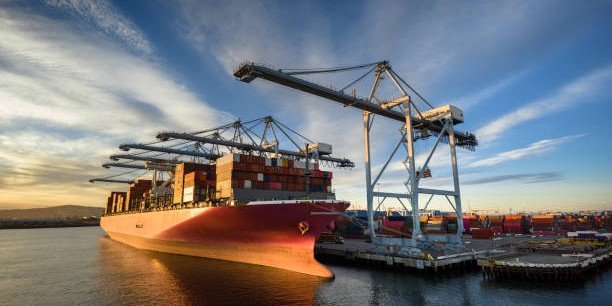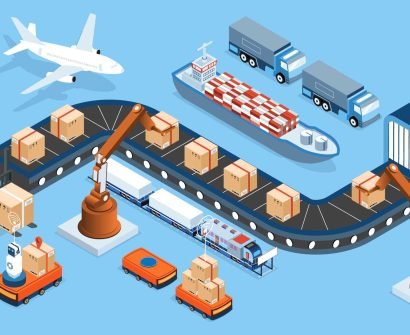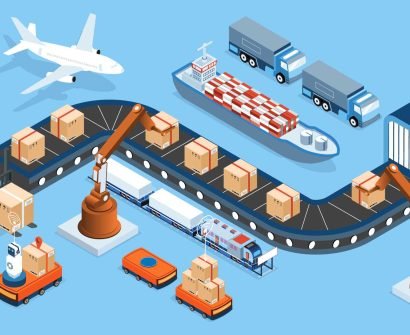
In Coursave, logistics related courses relate to a field that supports the smooth movement of goods, services, and information through a supply chain. As businesses continue to expand globally, the demand for skilled logistics professionals has significantly increased. Logistics involves not just transportation, but also the planning, management, and coordination of resources, making it an essential part of nearly every industry.
Logistics Related Courses
This has resulted in the creation of various logistics related courses designed to equip individuals with the knowledge and skills required to succeed in the dynamic logistics industry. These courses are typically structured to provide students with a comprehensive understanding of the various facets of logistics management.
They focus on teaching the key concepts of supply chain management, transportation, inventory control, procurement, and distribution. These courses can vary widely in terms of content, duration, and delivery method, but they all share a common objective, which is to prepare individuals for careers in logistics and supply chain management.
SCM is one of the core subjects of logistics related courses. It deals with the design, planning, execution, and monitoring of the entire supply chain, from the procurement of raw materials to the final delivery of products to consumers. Students learn how to manage networks, optimize processes, and reduce costs. Key areas covered include demand forecasting, inventory management, supplier relations, and risk management.
Transportation is a critical component of logistics. Courses in this area focus on the various methods of moving goods, whether by road, rail, sea, or air. Students are taught the principles of transportation economics, freight forwarding, and the effective way of optimization concerning transport routes.
In these logistics related courses, they also learn how to manage transportation costs and ensure timely deliveries, which are crucial for business success. Topics like transportation regulations, cargo handling, and international shipping are commonly explored. Efficient inventory and warehouse management are vital for any logistics operation.
These courses delve into the systems and technologies used to track and manage stock. Students learn about warehouse layout and design, inventory control techniques, order fulfillment strategies, and the use of warehouse management systems (WMS) for automation. They also study topics related to just-in-time (JIT) inventory systems and how to minimize holding costs while maintaining sufficient stock.
Procurement is a key area of logistics related courses, as it deals with the acquisition of goods and services needed by a company to carry out its operations. Students in logistics courses gain an understanding of supplier selection, contract negotiations, and strategic sourcing. They also explore global sourcing strategies and the challenges faced by businesses when dealing with international suppliers.
These can include tariffs, regulations, and language barriers. With the advent of technology, logistics courses now incorporate aspects of digital tools and automation systems used in the logistics industry. Students are introduced to technologies like Radio Frequency Identification (RFID), Global Positioning Systems (GPS), and Transportation Management Systems (TMS).
In these logistics related courses, they also learn about the Internet of Things (IoT) and how it is revolutionizing supply chain management by providing real-time data on the movement of goods. In today’s globalized world, logistics professionals need to understand the complexities of international trade and cross-border logistics.
This subject focuses on the international movement of goods, customs clearance processes, and global trade regulations. Students also study international trade agreements, currency exchange, and the challenges that come with managing supply chains across multiple countries, such as cultural differences and geopolitical risks.
As environmental concerns grow, sustainability has become a priority for businesses involved in logistics. Logistics related courses in this field teach students about sustainable practices within logistics operations. This includes reducing carbon footprints through the use of fuel-efficient transportation, implementing green warehousing strategies, and minimizing waste through recycling and reusing materials.
Students learn how companies can balance environmental responsibility with cost efficiency. These are typically short-term courses designed for individuals who wish to gain practical knowledge of logistics without committing to a full degree program. These programs are usually offered by our own online platform.
Our logistics related courses focus on providing foundational knowledge in supply chain management and may be suitable for those looking to start or advance their careers in logistics. Undergraduate courses in logistics and supply chain management provide a more in-depth understanding of the field.
These programs typically last 3-4 years and are designed to equip students with both theoretical knowledge and practical skills. Students are exposed to a variety of logistics-related topics, and they often have the opportunity to gain hands-on experience through internships or case studies.
For those who want to specialize further or pursue leadership positions above our own logistics related courses, postgraduate programs like Master’s in Logistics or an MBA with a focus on supply chain management are ideal. These programs typically last 1-2 years and are intended for professionals with prior work experience in the field.
They offer advanced topics such as strategic logistics management, financial modeling, and global supply chain optimization. Graduates of these programs often go on to hold managerial or executive roles in logistics firms, manufacturing companies, or consulting firms. The logistics and supply chain industry is one of the fastest-growing sectors globally.
As a result, logistics related courses provide students with skills that are in high demand across a range of industries. A degree or certification in logistics opens up a variety of career paths. Graduates can work in transportation management, supply chain coordination, procurement, warehouse management, or logistics consulting.
Logistics education provides students with an understanding of the global supply chain and the challenges of managing international logistics. This knowledge is invaluable in an increasingly interconnected world. With the rapid advancement of logistics technologies, students in these courses are well-prepared to work with cutting-edge systems that are transforming the industry.
Logistics related courses offer valuable knowledge and practical skills that are crucial for professionals looking to excel in supply chain industry. Whether it’s a short-term certificate course, an undergraduate degree, or an advanced MBA program, logistics education provides students with the tools they need to understand and manage the complexities of modern supply chains.











